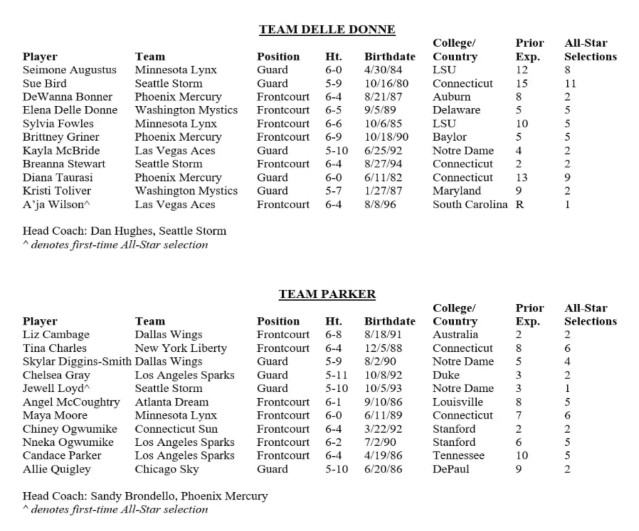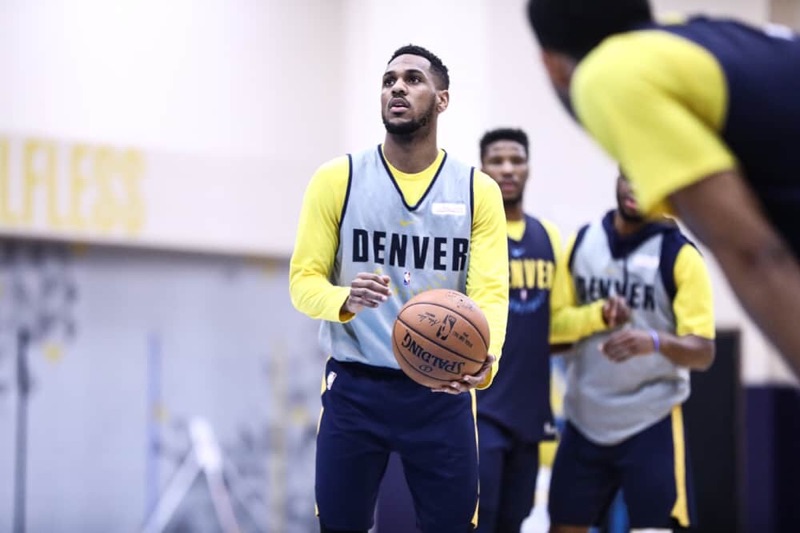This is the first of a five-part series about specific basketball positions. We will show you some examples of players to watch at each position, starting with point guard.
Point guards have long been described as "floor generals" on the basketball court. They are in charge of bringing the ball up the court to initiate offense. Typically, the point guard will determine which plays are to be run, or the coach will relay the plays through the point guard. Some of the best point guards are the equivalent of another coach on the floor.
In player profiles, we will give you a few examples of players to watch if you are a point guard or would like to become one. There are dozens of players that set great examples on the floor, especially in the pros (which this series will primarily focus on). We will pick out a few of the best in the game, or maybe some older players if there is adequate footage.
Let's open up with the more traditional point guard style:
Pass-first point guards
In the age of the three point shot, perimeter players are often attempting to emulate the likes of Steph Curry. Historically, point guards have been less scoring-oriented and more concerned with facilitation and assist-to-turnover ratio.
Many of the best pass-first point guards have retired, such as Jason Kidd or Steve Nash. Their highlights are still worth watching as well as more general game footage. Their ability to keep their head up while dribbling allows them to see every passing angle available on the floor.
There are still a few pass-first PG's left in the NBA. Mike Conely of the Memphis Grizzlies has come into his own as a scorer, but is still defensive and passing-minded. Future Hall of Famer, Chris Paul is a pass-first guy that is a terrific example if you are on a team that plays at a fast pace.
Another example is Rajon Rondo. Rondo has had an up-and-down career, but when he is locked-in, he may be the best example of a pass-first PG you can learn from in today's game.
Scoring point guards
Being a point guard means you will have the ball in your hands a lot. When you have a lot of touches and can score, it is a great benefit for your team. You will naturally get assists as well, but scoring guards are typically relied on by their team more for points.
There are many examples of scoring guards in today's game. Steph Curry, Kyrie Irving, and the combo guard James Harden are some big-name examples. An often underrated theme between these guards is their ball-handling ability that allows them to shake defenders on the perimeter and get to the rim at will.
Another great example to watch is Damien Lillard. Dame "Dolla" is a no-nonsense scorer that leads his team with a competitive fire.
Somewhere in-between
Not everything is black and white in terms of labeling a point guard's style. If you are interested in being a facilitating point guard that is also a capable scorer, there are plenty of those options as well.
The ultimate do it all guard today is Russell Westbrook. Coming off of his second season averaging a triple-double, Russ is a great one to watch as he overcomes his point guard size to ferociously attack the glass, the defense, and anything that stands in his way. Despite his tenacity, he always has his eyes open for teammates as one of the league's top assist men.
Another good in-between guard is John Wall of the Washington Wizards. Wall is not a skilled outside shooter, but his mid-range game and slashing ability make for solid scoring. He is also among the best passers in the NBA, typically averaging around 10 per game. He is a good one to watch if you are a speedy player that needs to strive for control.
Another in-between point guard to watch film on is Magic Johnson, who scored when necessary, but was always on the lookout for the open man. For more up close and personal work with an experienced point guard, you can of course get in some Basketball Movement training with former pro, Rob Yanders.
That's it for Player Profiles: Point guards! Current or future shooting guards, keep your eye out for the next installment as we break down top player examples at that position. Forwards, you will be up next!











